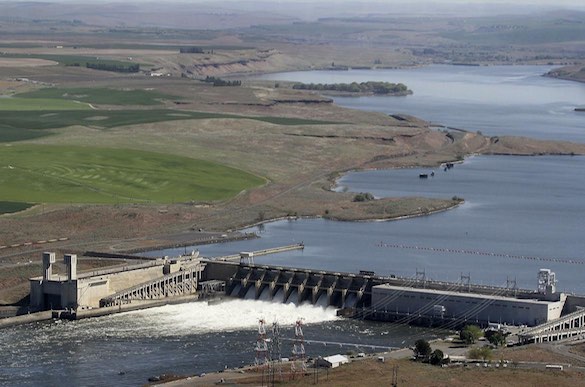forum
library
tutorial
contact

Vulnerable Communities
Need Low-Cost Energy
by Kurt Miller
The Register-Guard, May 22, 2020
|
the film forum library tutorial contact |

|
Vulnerable Communities
by Kurt Miller
|
 It is well known that people 65 years and older are at high risk for COVID-19 complications. However, recent studies show that communities of color and other vulnerable communities have been extremely hard hit as well.
It is well known that people 65 years and older are at high risk for COVID-19 complications. However, recent studies show that communities of color and other vulnerable communities have been extremely hard hit as well.
As an example, half of those who tested positive for coronavirus in Washington County are Latinos, yet they make up only 16% of the county's population. In Washington state, people of Hispanic descent also represent 30% of the cases, according to recent data, but they only represent 13% of the state's population.
For undocumented families especially, the lack of unemployment insurance and paid sick leave makes their situation especially worrisome. It means making impossible choices between health risks and losing critical income.
Under Oregon's state of emergency, we are encouraged by Gov. Kate Brown's focus on communities that have been disproportionately impacted by COVID-19 from a health and economic perspective. However, we are disappointed that her energy policy is at odds with her social and environmental platforms.
While Brown has gone so far as to declare an executive order to implement the carbon policy she desires, she has now twice endorsed the breaching of the lower Snake River dams.
Her stance ignores the fact that many communities with the highest percentage of low-income and disadvantaged populations depend on hydroelectricity as a cost-effective, carbon-free energy resource.
Many also rely on dams -- and the irrigation they provide -- for agricultural jobs. Now, agricultural workers are on the front lines of the COVID-19 crisis, as they work to keep our food supply chain intact while trying to avoid illness.
Northwest RiverPartners represents many of the not-for-profit electric utilities that serve these essential workers and their communities, along with a number of ports and businesses that support them. Championing affordable energy is an important part of our mission.
A recently completed federal study showed that replacing the full capabilities of the lower Snake River dams with solar, wind and batteries would increase the Bonneville Power Administration's electricity rates by 50%. The increased costs would result in hundreds of thousands of Oregonians facing huge hikes in their electricity bills.
Alternative replacement options mean either doubling the risk of region-wide blackouts or increasing the region's carbon output by 3 million metric tons per year. That roughly equates to a 10% increase in the number of carbon emissions from the Northwest's entire electricity sector, not to mention increases in other toxic emissions.
Low-income communities are exposed to environmental pollution at a rate that far exceeds the general public. If we embrace an energy future that is clean, equitable and accessible to all, our best path is through the use of hydroelectricity. While solar and wind power are becoming more affordable, they depend on the hydroelectric system to provide very valuable minute-to-minute and day-to-day energy to balance the ups and downs of sunshine and wind.
Northwest RiverPartners is fighting an ongoing battle to save the lower Snake River dams because they are vital to our ability to provide low-cost, carbon-free energy. We know that the loss of such a critical resource could lead to blackouts and huge energy price hikes, unfairly harming those who can least afford it.
Critically, we encourage Brown to create a more consistent policy that recognizes the unfair burden that higher energy costs and higher pollution place on the disadvantaged. Moreover, we urge everyone to use this lens in thinking about your personal energy choices and consider how these choices also affect our local communities and the entire region.
learn more on topics covered in the film
see the video
read the script
learn the songs
discussion forum
